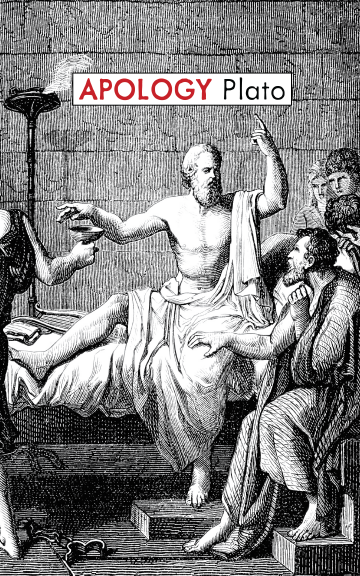Apology
Apology
A fundamental text in the history of philosophy, Plato's The Apology follows Socrates' trial and his defense of the charges of corrupting the youth of Athens. Derived from the Greek 'apologia,' the term Apology refers to a speech made to defend oneself rather than a 'mea culpa.'
In traditional dialogue format, Socrates speaks plainly and openly to the court by providing an honest account of his self-acknowledged ignorance and search for truth. His actions were motivated by a prophecy from the oracle at Delphi, which claimed he was the wisest among all men."
Socrates determines that his wisdom comes simply from not knowing anything with certainty: "I know that I know nothing." Socrates' musings on the streets of Athens delighted the youth to whom he proclaimed.
Yet, in his defense, he claimed that his irritating method, a gadfly stinging the lazy horse of Athens, and his continued embarrassment of Athenians in his dialogues, were the actual reasons he was facing these charges in court. The capstone to Socrates' enduring philosophy, The Apology, shows readers why an inquisitive mind will always prevail, even when the stakes are at their most extreme of life and death.



